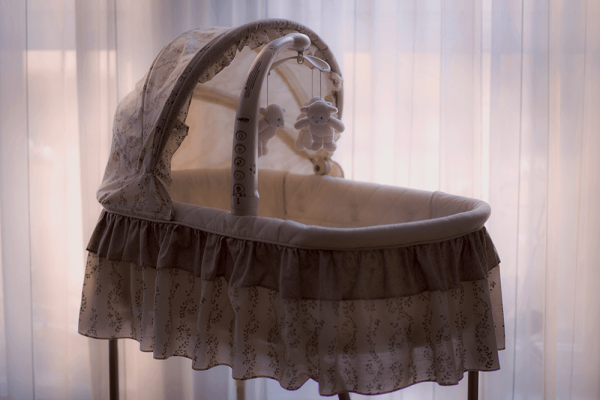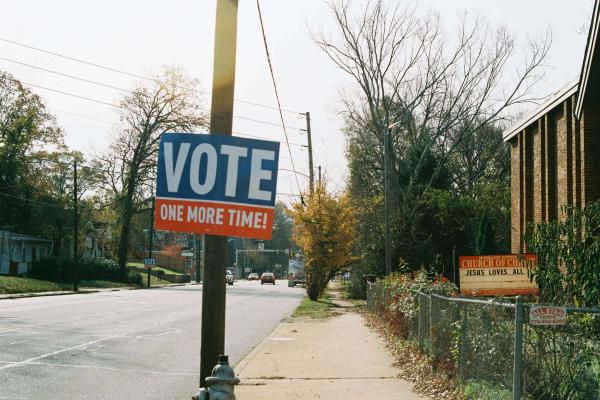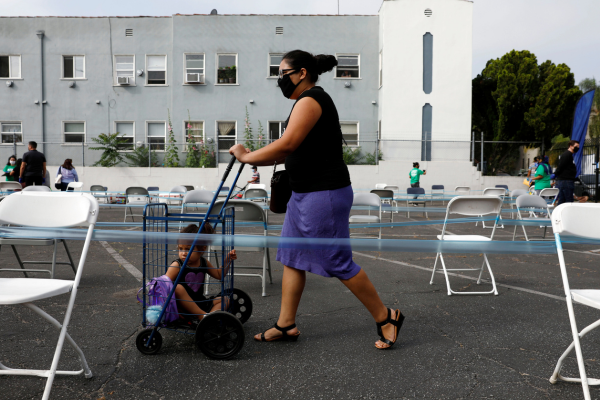When Pope Francis called for a global ban on surrogacy during a foreign policy address last month, non-Catholics, especially those in the United States, may have felt the subject came out of nowhere. Surrogacy is medically and legally regulated in the U.S. as an intervention recommended by the American Society for Reproductive Medicine for those who do not have the ability to become pregnant or carry a pregnancy to term. But the pope’s concern was beyond the ethics of procreation, as he positioned his pronouncement within the context of a global economy and exploitation of women.
“A child is always a gift and never the basis of a commercial contract,” Francis said. “At every moment of its existence, human life must be preserved and defended; yet I note with regret, especially in the West, the continued spread of a culture of death, which in the name of a false compassion discards children, the elderly and the sick.”
It’s an election year again, and so far it sees that President Joe Biden and former President Donald J. Trump will again be on the ballot for the White House in 2024. For many churches, that means a repeat of 2020’s division, misinformation, and difficult decisions about corporate worship.
Buckle up.
We have been on this ride before, but that doesn’t mean it will be any easier.
I love documentaries. I try to watch a minimum of one per week. I am especially drawn to documentaries like Born in Synanon — a documentary about a rehab community that eventually became a cult — because it wrestles with questions around race and religion. These two subjects are endlessly fascinating to me.
So, when I heard about Faith in Blackness, I knew I would have to see it. In October 2023, one of the executive producers, Josué Perea, invited me to a screening at the University of Washington. The documentary explores the relationship between AfroLatine spirituality and how that spirituality shapes a person’s identity and understanding of the divine.
On Sunday, I tuned in to watch my first football game in over a year as part of my discipline toward Christian nonviolence. That may seem odd, especially since I’m the person who wrote about quitting the NFL as an act of nonviolence just last year. But this weekend I tuned in for the NFL’s Pro Bowl competition, including the flag football game, to signal my support for player safety and wellbeing.
Payne details the creation, proliferation, and decline of CCM, tracing the industry’s relationship with conservative evangelical Christianity.
I’m a historian and a religious studies scholar who recently published a book exploring the role of religion in political movements such as anti-abortion campaigns. Historical evidence can help identify trends that will likely influence the mix of religion and politics in the year ahead.
From my perspective, three key trends are likely to show up in 2024.
This week the House voted with a resounding margin of 357 to 70 to pass a bill that includes support for low-income families with multiple children. If passed in the Senate, the “Tax Relief for American Families and Workers Act” will enhance the Child Tax Credit by expanding eligibility and adjusting payments for inflation, provisions that would benefit about 16 million children in families with low income, lifting 400,000 children above the poverty line.
Many of today’s parents of young children represent a culture shift in regard to corporal punishment. Statistically, many of them were spanked as children but won’t continue that practice in their own parenting. Since the late 1990s, a growing body of research has led experts to advise against spanking, and parents have started to listen. But one group in particular stands by the practice: Christians.
Scorsese, talking about his upcoming film on the life of Jesus, told the Los Angeles Times: “I’m trying to find a new way to make it more accessible and take away the negative onus of what has been associated with organized religion.”
I’ve noticed that a lot of the resources that exist for facilitating relationships across disagreement are geared toward the non-affirming: “How should Christian parents respond if one of their children comes out as gay?” “Can Christian parents point their gay children to Jesus?” “Responding to a ‘Gay Christian’ in the Family.” And while many LGBTQ+ people don’t want close relationship with non-affirming family, those of us who do want those relationships, don’t want to sacrifice our safety. Darren Calhoun has spent two decades working to build bridges that protect the dignity and safety of all parties, including LGBTQ+ people and their non-affirming community.









